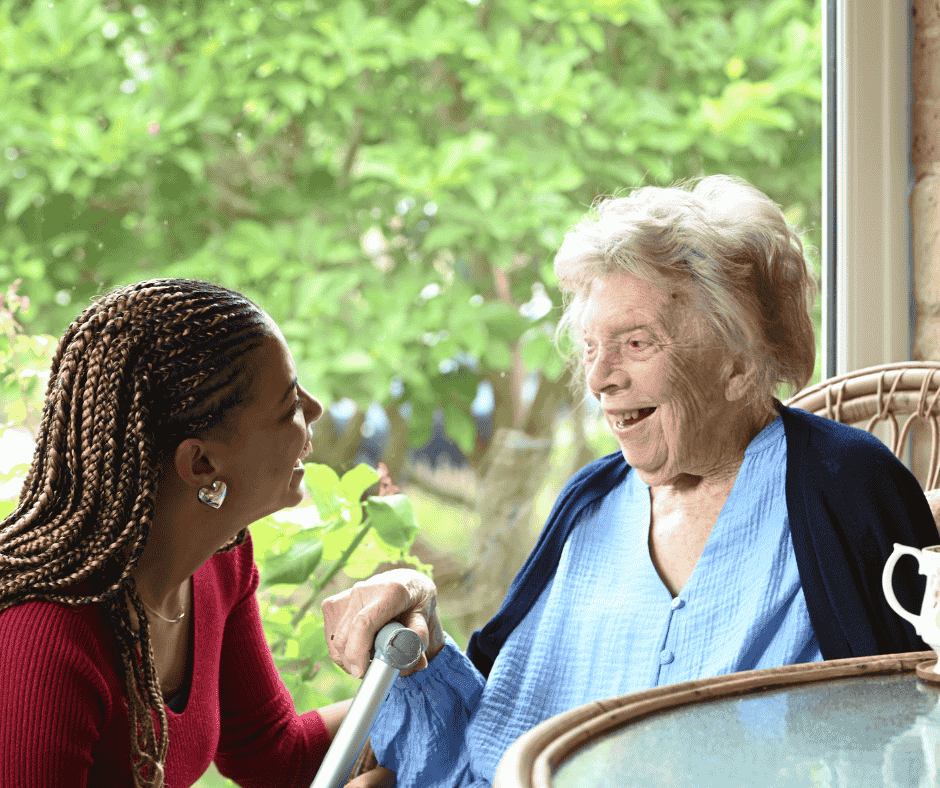Breaking Down the Stigma Behind Elderly Mental Health
10/10/24 marks ‘Mental Health Awareness Day’.
This blog will recognise the profound impact that mental health has on the elderly. It's crucial to acknowledge that the well-being of our older population is often neglected and this is something that needs to change.
The Significance of Mental Health in Aging
Mental health is a fundamental aspect of overall wellness. Unfortunately, many older adults face mental health challenges that are frequently overlooked. Conditions such as depression, anxiety, and cognitive decline can have profound effects on their quality of life. Additionally, the stigma surrounding mental health may prevent elders from seeking help, resulting in isolation and deteriorating emotional health.
Why is there a stigma surrounding elderly Mental Health?
Society has historically viewed mental health issues as a sign of weakness or failure. This perspective can lead to shame and reluctance to seek help. Here are three common stigmas associated with elderly mental health.
Lack of Awareness: There is often limited understanding of mental health conditions among the elderly and their families. Many may not recognise symptoms or understand that mental health issues are treatable.
Generational Beliefs: Older generations may have grown up in environments where mental health was not openly discussed, leading to ingrained beliefs that discourage acknowledgment or treatment of mental health issues.
Stereotypes of Aging: Society often perpetuates stereotypes that portray older adults as frail or forgetful. These stereotypes can diminish the seriousness of mental health issues and contribute to dismissive attitudes.
Common and Real Elderly Mental Health Challenges
Social Isolation and Loneliness: Many seniors experience social isolation due to retirement, loss of loved ones, or mobility limitations. This can lead to feelings of loneliness and despair, which can exacerbate mental health issues.
Chronic Health Conditions: The management of chronic illnesses can be overwhelming and may contribute to feelings of anxiety, depression and apathy.
Life Transitions: Major life changes, such as coping with the loss of a spouse or moving into assisted living facilities can have a significant emotional impact.
Cognitive Decline: Conditions such as Dementia and Alzheimer’s disease can affect mood and behaviour, further complicating mental health.
Strategies for Promoting Emotional Well-Being
At Sonder Home Care, we prioritise emotional well-being as part of our comprehensive care approach. Here are several effective strategies to support the mental health of seniors:
Encourage Social Engagement: Facilitate regular social interactions to combat loneliness. This could include Companionship Care, family visits, phone calls, or social gatherings or Events.
Promote Meaningful Activities: Encourage your elders to engage in hobbies and interests that provide joy and fulfilment, such as gardening, arts and crafts, reading, journalling, singing and story-telling.
Support Physical Health: Encourage physical activity, which has been shown to improve mental health. Simple exercises like walking or stretching can enhance mood and reduce anxiety.
Foster Open Communication: Create a safe environment for the elderly to express their feelings. Active listening and validation can help them feel understood and supported.
Advocate for Professional Support: If mental health issues are identified, encourage seniors to seek assistance from mental health professionals. Therapy and counseling can provide valuable coping strategies.
Incorporate Mindfulness Practices: Introduce relaxation techniques, such as meditation and deep breathing exercises, to help reduce stress and clear the mind.
Mental health plays a critical role in the overall well-being of every individual, especially among our aging population. To truly support our elders, we must engage in open and honest conversations about their mental health challenges. By increasing awareness and fostering compassionate environments, we can break down stigma and ensure that every senior feels recognised and supported.
Let us collectively commit to making mental health a priority, improving access to essential resources, and standing up for those who are struggling. Remember, seeking help is a sign of strength, and no one should navigate their challenges in isolation.
Together, we can build a community that prioritises mental wellness for all.

